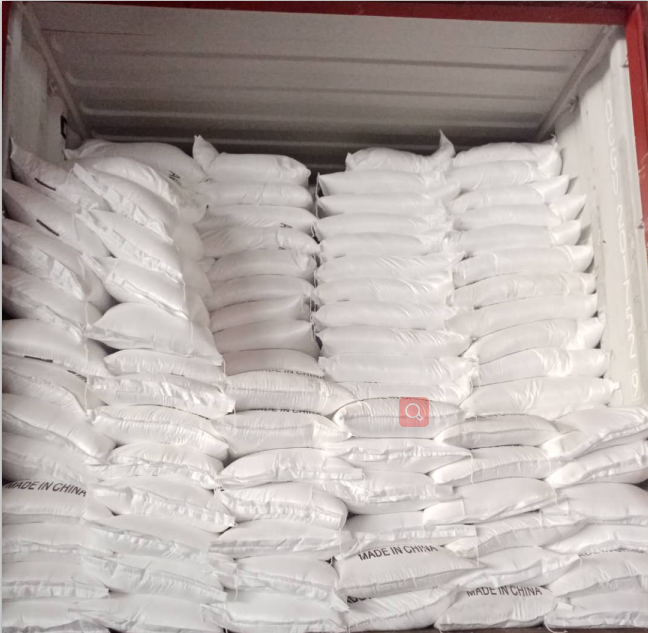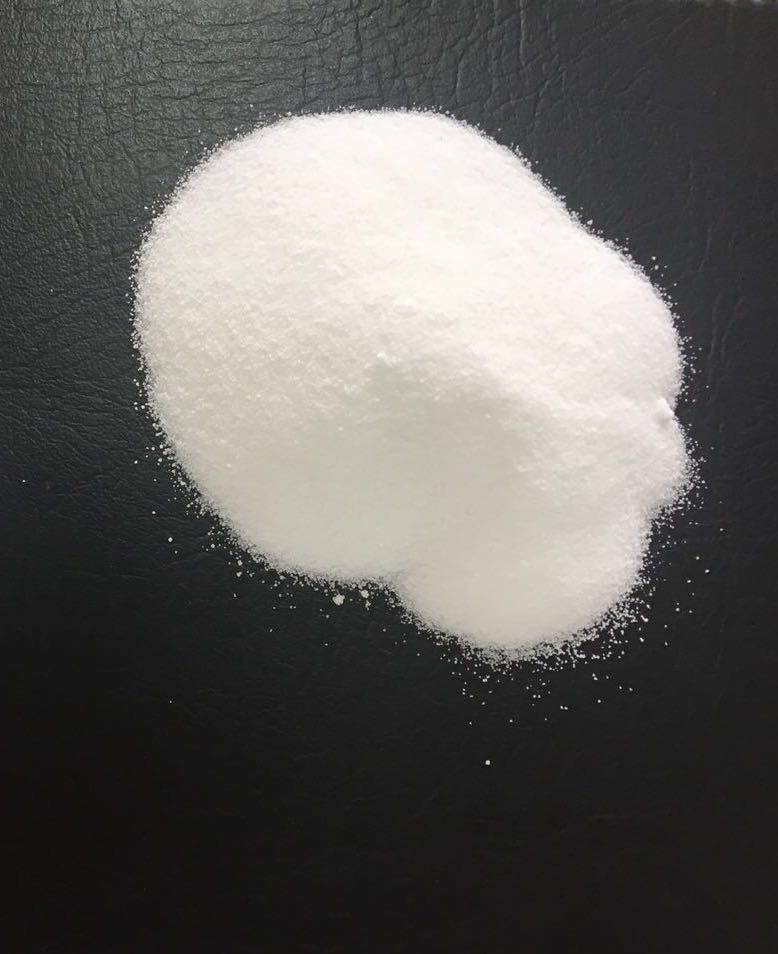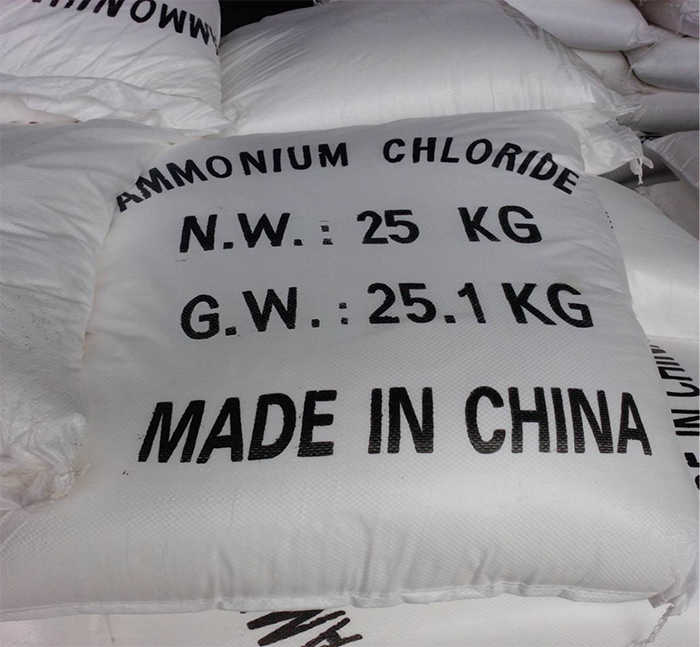Ammonium chloride is a colorless crystal or white crystalline powder; it is odorless, tastes salty and cool; it has hygroscopicity. This product is soluble in water and slightly
soluble in ethanol.
【Basic information】
Chinese name | Ammonium Chloride | English name | ammonium chloride |
Chemical formula | NH4Cl | Nickname | Ammonium Chloride |
Molecular weight | 53.49 | Density | 1.527 |
CAS Registry Number | 12125-02-9 | EINECS registration number | 235-186-4 |
Melting point | 340 °C (subl.)(lit.) | Boiling point | 520℃ |
Common name | Electric salt, electric powder, salt essence, sallow sand | ||
【Traits】
Colorless crystal or white granular powder. It is a strong electrolyte that dissolves in water and ionizes ammonium ions and chloride ions. When ammonia gas and hydrogen chloride are combined to produce ammonium chloride, there will be white smoke. Odorless. The taste is salty, cool and slightly bitter. It has low moisture absorption, but it can also absorb moisture and agglomerate in humid and rainy weather. Powdered ammonium chloride is very deliquescent, especially wet ammonium. The moisture absorption point is generally about 76%. When the relative humidity in the air is greater than the moisture absorption point, ammonium chloride will absorb moisture and tend to agglomerate. It can sublimate (actually the process of decomposition and regeneration of ammonium chloride) without melting point. The relative density is 1.5274. The refractive index is 1.642. Low toxicity, LD50 (rat, oral) 1650mg/kg. It is irritating. Sublimation by heating to 350℃, boiling point 520℃.
Easily soluble in water, slightly soluble in ethanol, soluble in liquid ammonia, insoluble in acetone and ether. Hydrochloric acid and sodium chloride can reduce its solubility in water. Its water solubility is 29.4g at 0℃, 33.2g at 10℃, 37.2g at 20℃, 41.4g at 30℃, 45.8g at 40℃, and 50℃. It is 50.4g, 60°C is 55.3g, 70°C is 60.2g, 80°C is 65.6g, 90°C is 71.2g, 100°C is 77.3g). It begins to decompose when heated to 100°C, and can be completely decomposed into ammonia and hydrogen chloride gas at 337.8°C. When it is cold, it recombines to produce ammonium chloride with very small particles, which appears as thick white smoke, which is not easy to sink or regenerate. Dissolved in water.
The pH of the aqueous solution: Because the ammonium ion ionized in the water is hydrolyzed to make the solution acidic, the pH value of saturated ammonium chloride solution is generally around 5.6 at room temperature. At 25°C, 1% is 5.5, 3% is 5.1, and 10% is 5.0. Ammonium chloride itself can be used as a stabilizing reagent for bismuth and antimony (providing chloride ions for coordination, and dissolving its compound and ammonium chloride in dilute hydrochloric acid when used).
【Quality Index】
Indicator name | First grade | Second class |
Ammonium Chloride(NH4Cl)Quality score (calculated on dry basis)/%≥ | 99.3 | 99.0 |
Moisture/%≤ | 1.0 | 1.0 |
Sodium chloride (on dry basis)/%≤ | 0.2 | 0.3 |
Water insoluble matter/%≤ | 0.02 | 0.03 |
Sulfate/%≤ | 0.02 | 0.04 |
PH value | 4.2~5.8 | 4.2~5.8 |
【Use】
Mainly used in dry batteries, storage batteries, ammonium salts, leather tanning, electroplating, precision casting, medicine, photography, electrodes, adhesives, yeast nutrients and dough improvers, etc. Ammonium chloride is abbreviated as "ammonium chloride", also known as halogen sand. It is an effective nitrogen chemical fertilizer with a nitrogen content of 24% to 25%. It is a physiological acid fertilizer. It is suitable for wheat, rice, corn, rapeseed and other crops, especially for cotton and linen crops, it has the effect of enhancing fiber toughness and tensile strength and improving quality. However, due to the nature of ammonium chloride and if it is applied incorrectly, it will often bring some adverse effects to the soil and crops. Ammonium nitrate is generally used.
In addition, many foreign farms add ammonium chloride as ammonium salt non-protein nitrogen to the feed of cattle and sheep, but the amount of addition is strictly limited.
It can be used as a chemical fertilizer, which is a nitrogen fertilizer, but ammoniated chemical fertilizers cannot be used together with alkaline chemical fertilizers, and it is better not to use them in saline soil to avoid reducing fertilizer efficiency. Ammonium chloride is a strong acid and weak base salt, which releases acidity at high temperatures. Ammonium chloride is often used as a curing agent when casting hot core boxes to make cores. Its ratio: ammonium chloride: urea: water = 1:3:3.


